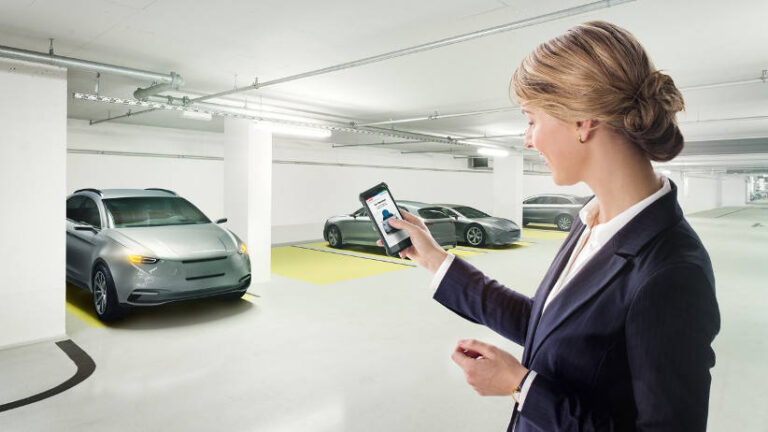It takes less than five seconds for a hacker to compromise a standard keyless vehicle entry system. Among experts, this is known as a relay station attack. A Bosch key app is going to change all that.
“Our Perfectly Keyless system revolutionises keyless entry systems. It is the ‘key’ to preventing digital car theft,” says Harald Kröger, president of the Bosch Automotive Electronics division.
The special thing about the solution is that the Bosch technology works with a virtual key stored in the smartphone. Sensors installed in the car recognize the owner’s smartphone as securely as a fingerprint and open the vehicle only for them. Digital key management links the app and the vehicle via the cloud. With Perfectly Keyless, Bosch is thus doing something that no other keyless entry system has done before, namely offering both convenience and security.
The new smartphone-based key can be used in cars, entire car-sharing fleets, and commercial vehicles. Bosch believes this system with its built-in security lock has huge market potential worldwide.
Bosch revolutionises keyless entry
With conventional keyless entry systems, the car key still needs to be carried in a jacket or suit pocket, for example. To open the door and start the engine, it communicates with the car using a radio signal in the low frequency (LF) or ultra high frequency (UHF) range.
In the race against thieves, the automotive industry is constantly refining existing systems. It’s like a marathon. “Now, with Perfectly Keyless, Bosch is launching into a sprint in the development of digital vehicle entry systems. Our motto is revolution, not evolution,” Kröger says.
Instead of transmitting data via low or high frequency radio technology, the Bosch system uses the smartphone as virtual key and Bluetooth as the transmission technology. This means that the car key can stay at home.
And thanks to its decades of experience in semiconductors, Bosch is in a position to make this connection as secure as a fingerprint.
Every smartphone contains tiny microchips to manage communication via Bluetooth, and these play a key role in the Bosch solution. Together with sensors installed in the vehicle and a special control unit, they form a system that opens the door only for the smartphone containing the virtual key that fits in the Perfectly Keyless system’s digital lock. The system blocks signals from other smartphones or from electronic devices that manipulate the radio transmission. In this way, Perfectly Keyless protects against unauthorized access.
A keyless journey
Virtual vehicle keys on smartphones have long been a feature of car-sharing fleets. These vehicles don’t move until their operator authorises entry via the cloud; only then can a user unlock the vehicle, start it, and lock it again using an app.
This conversation between the phone and the vehicle uses near-field communication (NFC), a wireless protocol for sharing data over distances of a few centimeters.
For this to work, users must take out their smartphone before each journey and hold it up to a marked area on the vehicle. Only then can the system recognise the user and unlock the doors. With Bosch Perfectly Keyless, the smartphone can also stay in its pocket. This means greater ease of use for drivers, and carsharing users benefit from the added convenience.
The Bosch solution also works in trucks and for entire fleets of commercial vehicles. That means no more manual administration of vehicle keys, physical handover, or hassle when a key is lost or stolen. If the smartphone is lost or stolen, and the Perfectly Keyless app with it, the digital key can be simply deactivated online, thus blocking access to the vehicle.
An Australian innovation, engineering the cars of the future
The Perfectly Keyless system is another leading innovation from the automotive electronics group of Bosch Australia. Being readied for volume production, the Perfectly Keyless system has become a global Bosch project spanning three continents.
Bosch Australia has the responsibility for all the hardware required to implement the system within the vehicle including wireless connectivity nodes for locating a smart phone position accurately, safety and securely.
“Perfectly Keyless is an example of the high-value engineering work that can be done in Australia in a post-passenger vehicle manufacturing environment,” says Gavin Smith, President of Bosch Australia.
Bosch Australia employs more than 200 engineers working in the development and application of vehicle electronics, cyber security gateways, vehicle safety and driver assistance systems for the global car industry.






